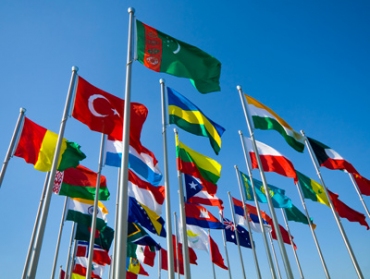Global trade is the new reality. Our millennial world is almost borderless thanks to the internet, cell phones and satellite technology. What we can appreciate about this is that it is now easier to do business with someone across the world than it has ever been before. With various time zones, different forms of currency, diverse languages and more; we can still call global trade the new horizon of commerce and capitalism. An online article titled Strange Trade was published by FP on October 2011. It indicated that global trade has just about quadrupled since 1990. See http://www.foreignpolicy.com/articles/2011/10/11/strange_trade.
There was a time when we would not have been able to arrange meetings via technology and then have those meetings without one party to the transaction having to fly across the miles to meet with the other party(ies) to the transaction. So, now that we are a global community, a meeting can be arranged and held using Skype, Jijah or a similar voice over internet technology. We can also hold a phone conference, training session, book talk or brainstorming session with multiple parties and more.

While some business people still travel in order to conduct business around the world, it’s not always necessary. Even so, global trade can be both a blessing and a burden. After all, how will one keep track with the different time zones of the key players so they don’t call at the wrong time or forget to call because they sleep and do business on a schedule that differs by half a day or more? This is where software comes in. The right software can make it possible for a company to comply with preferences, such as times to call; and more importantly, to comply with regulations in different companies.
Trading with another company may require adherence to particular free trade laws, compliance with tax laws and more. While one doing business in the United Kingdom might not need to know about the law that bans driving cows down the roadway from 10:00am-7:00pm without permission from the commissioner of police (this is a real law), there are some other regulations across the waters that one must adhere to or face consequences. There is an export compliance software that companies can use that helps them stay abreast of and obedient to the various regulations that a particular country might have in place.
Rather than wade through all the legal mumbo jumbo, many companies are turning to software. Rather than keeping an expensive attorney on retainer, this software option appeals to a massive number of companies as an affordable and sensible headache preventer.
I mean, even postage stamps are serious business in England, where it is considered an act of treason to place a postage stamp bearing a British Monarch upside down. In France, it’s illegal to die unless you’ve obtained a burial plot. The point is that it’s trade laws that border on the unimaginable like these laws which cause savvy companies to elect to allow sophisticated software to wade through all the particulars for them.
Such software also helps a company to more efficiently engage in trade in the international arena. Some help them streamline their processes, and many save money in various ways.
There’s outsourcing work to other countries, using different freight services to transport various goods, there’s also the complex and often murky waters of finance. All of these things could be barriers to global trade were it not for intelligent software.
Avoiding trade penalties and fines; getting through various customs requirements; protecting the company brand, intellectual property and reputation; all of these are good arguments for using intelligent software in order to conduct cross-border business.

